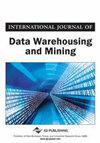基于大数据分析的智慧城市公共管理可持续发展优化方法
IF 0.7
4区 计算机科学
Q4 COMPUTER SCIENCE, SOFTWARE ENGINEERING
引用次数: 0
摘要
随着城市化进程的加快,传统的城市管理方式已经越来越不能满足城市管理和发展的需要。与此同时,随着人工智能(AI)和大数据(BD)的快速发展,利用AI和BD来分析城市也逐渐兴起。因此,本文运用AI和BD技术研究智慧城市公共管理可持续发展的优化方法。研究显示,N、Z、S三个城市的受访者对城市公共管理主体的事件处理满意度分别为60.67%、60.07%、60.31%。专家对城市公共管理优化策略的可行性和有效性评价得分分别为88.79分和92.82分。公众对智慧城市公共管理主体处理事件的满意度仍然不够高。本文结合BD提出的智慧城市公共管理可持续发展的优化策略具有一定的实用价值。本文章由计算机程序翻译,如有差异,请以英文原文为准。
Optimization Method for Sustainable Development of Smart City Public Management Based on Big Data Analysis
With the acceleration of the urbanization process, the traditional urban management has become increasingly unable to meet the needs of urban management and development. At the same time, with the rapid development of artificial intelligence (AI) and big data (BD), the use of AI and BD to analyze cities has been gradually emerging. Therefore, this paper used AI and BD to study the optimization method of sustainable development of smart city public management. The research showed that the respondents in N, Z, and S cities were 60.67%, 60.07%, and 60.31% satisfied with the handling of events by urban public management subjects, respectively. The experts' evaluation scores on the feasibility and effectiveness of urban public management optimization strategies were 88.79 and 92.82, respectively. The public's satisfaction with the smart city public management subject's handling of events was still not high enough. The optimization strategy for sustainable development of smart city public management proposed in this paper with BD had certain practical value.
求助全文
通过发布文献求助,成功后即可免费获取论文全文。
去求助
来源期刊

International Journal of Data Warehousing and Mining
COMPUTER SCIENCE, SOFTWARE ENGINEERING-
CiteScore
2.40
自引率
0.00%
发文量
20
审稿时长
>12 weeks
期刊介绍:
The International Journal of Data Warehousing and Mining (IJDWM) disseminates the latest international research findings in the areas of data management and analyzation. IJDWM provides a forum for state-of-the-art developments and research, as well as current innovative activities focusing on the integration between the fields of data warehousing and data mining. Emphasizing applicability to real world problems, this journal meets the needs of both academic researchers and practicing IT professionals.The journal is devoted to the publications of high quality papers on theoretical developments and practical applications in data warehousing and data mining. Original research papers, state-of-the-art reviews, and technical notes are invited for publications. The journal accepts paper submission of any work relevant to data warehousing and data mining. Special attention will be given to papers focusing on mining of data from data warehouses; integration of databases, data warehousing, and data mining; and holistic approaches to mining and archiving
 求助内容:
求助内容: 应助结果提醒方式:
应助结果提醒方式:


